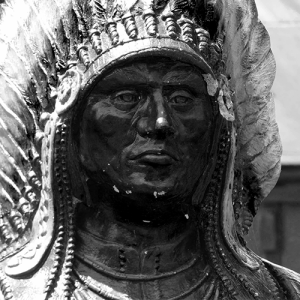Johnson v. M’Intosh: The Power to Grant Land
Historical
In Johnson v. M’Intosh, 21 U.S. 543 (1823), the U.S. Supreme Court addressed whether Native Americans had the power to give, and of private individuals to receive, title to land.
The justices ultimately answered, in the case of Johnson v. M’Intosh, in the negative, citing the power of Congress to extinguish aboriginal title.
The Facts of the Case
The case involved two competing claims to land located in the Northwest Territory, formally part of the colony of Virginia. Thomas Johnson purchased land from Piankeshaw Native American tribes in 1773 and 1775. Johnson’s descendants, who had inherited the land, filed an ejectment action against the defendant, William M’Intosh, who had obtained the same land from the federal government. The District Court sided with M’Intosh, holding that M’Intosh’s title was superior because Congress granted it. The plaintiffs subsequently appealed to the Supreme Court.
The Court’s Decision
The Court affirmed the lower court’s decision, holding that “the plaintiffs do not exhibit a title which can be sustained in the Courts of the United States.” Chief Justice John Marshall authored the Court’s opinion.
In explaining the Court’s decision, the Chief Justice provided a thorough history of the discovery and settlement of the Americas. He specifically highlighted the importance of the discovery rule under which the conquering nation holds title to land to the exclusion of all others.
Justice Marshall’s opinion regarding Johnson v. M’Intosh further detailed the rights of the land’s original occupants, stating:
[T]he rights of the original inhabitants were, in no instance, entirely disregarded; but were necessarily, to a considerable extent, impaired. They were admitted to be the rightful occupants of the soil, with a legal as well as just claim to retain possession of it, and to use it according to their own discretion; but their rights to complete sovereignty, as independent nations, were necessarily diminished, and their power to dispose of the soil at their own will, to whomsoever they pleased, was denied by the original fundamental principle, that discovery gave exclusive title to those who made it.
Thus, following the American Revolution and the treaties that followed, the federal government obtained the “exclusive right…to extinguish [the Indians’] title, and to grant the soil.” The Court further held that the “power to grant land must negative the existence of any right which may conflict with, and control it. An absolute title to lands cannot exist, at the same time, in different persons, or in different governments.”
Previous Articles
Supreme Court Rejects Mexico’s Suit Against U.S. Gun Manufacturers
by DONALD SCARINCI on July 8, 2025
In Smith & Wesson Brands v. Estados Unidos Mexicanos, 605 U.S. ____ (2025), the U.S. Supreme Co...
SCOTUS Sides With Employee in Reverse Discrimination Case
by DONALD SCARINCI on July 2, 2025
In Ames v. Ohio Department of Youth Services, 605 U.S. ____ (2025), the U.S. Supreme Court held tha...
Supreme Court Rejects Moment of Threat Doctrine in Deadly Force Case
by DONALD SCARINCI on June 30, 2025
In Barnes v. Felix, 605 U.S. ____ (2025), the U.S. Supreme Court rejected the Fifth Circuit Court o...
The Amendments
-
Amendment1
- Establishment ClauseFree Exercise Clause
- Freedom of Speech
- Freedoms of Press
- Freedom of Assembly, and Petitition
-
Amendment2
- The Right to Bear Arms
-
Amendment4
- Unreasonable Searches and Seizures
-
Amendment5
- Due Process
- Eminent Domain
- Rights of Criminal Defendants
Preamble to the Bill of Rights
Congress of the United States begun and held at the City of New-York, on Wednesday the fourth of March, one thousand seven hundred and eighty nine.
THE Conventions of a number of the States, having at the time of their adopting the Constitution, expressed a desire, in order to prevent misconstruction or abuse of its powers, that further declaratory and restrictive clauses should be added: And as extending the ground of public confidence in the Government, will best ensure the beneficent ends of its institution.





